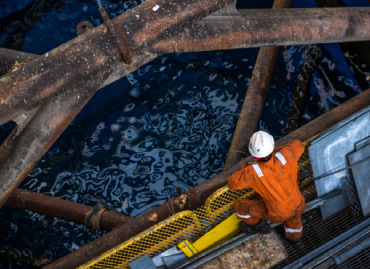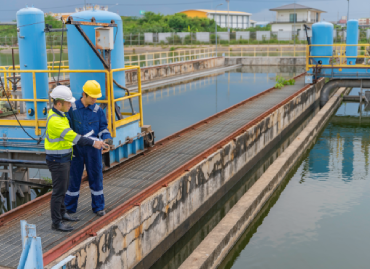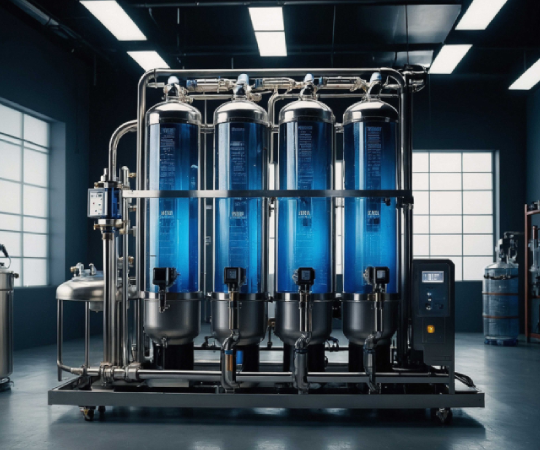- By Admin
- 08 Sep 2025
- ETP Plant
Integrated Water and Wastewater Treatment Technologies for Expanding Chemical Industry Operations
India's chemical industry has become one of the fastest-growing pillars of industrial development, significantly contributing to the nation's GDP, employment, and exports. With a global ranking among the top producers, the sector manufactures petrochemicals, dyes, agrochemicals, specialty chemicals, and bulk intermediates that support industries ranging from textiles to pharmaceuticals and agriculture.
Maharashtra remains a core hub for this expansion, with strong industrial zones in cities like Mumbai, Navi Mumbai, Tarapur, and Lote Parshuram. These regions host numerous chemical manufacturing facilities, from small-scale plants to multinational giants. Yet, with this rapid growth, the challenge of sustainable water and wastewater management grows more urgent.
"Water is more than a resource in the chemical industry—it is a safeguard of life, quality, and sustainability. Every drop passing through a factory carries responsibility, not just to meet production targets, but to protect ecosystems and communities. Treating it wisely means ensuring growth without compromising the future."
The Critical Role of Water in Chemical Manufacturing
Water is indispensable in chemical production, serving as the foundation for raw material processing, reaction control, dilution of acids and solvents, reactor cleaning, and quality assurance. It also plays an equally crucial role in supporting utilities such as boilers, scrubbers, and cooling towers, where enormous volumes are consumed daily. Without reliable and treated water supplies, plant safety and product consistency face serious risks. Thus, sustainable water treatment systems are not a luxury but a necessity for ensuring uninterrupted operations and compliance with regulatory standards.


The Wastewater Challenge in Chemical Facilities
Every stage of chemical production generates wastewater, whether from reaction effluents, spent solvents, contaminated stormwater, or routine equipment wash-downs. Unlike ordinary effluents, wastewater from chemical plants is complex and often hazardous, containing high loads of acids, alkalis, organic compounds, heavy metals, dyes, oils, and persistent organic pollutants.
Its variability makes treatment a daunting task, requiring site-specific solutions engineered to match production processes. Left untreated, such wastewater not only disrupts ecosystems but also threatens public health and groundwater safety, leading to legal and regulatory consequences for non-compliant industries.
Understanding the Pollutant Profile of Chemical Wastewater
The unique nature of chemical effluents means they often exhibit extremely high chemical and biological oxygen demand. These waters may contain hazardous solvents, phenols, synthetic compounds, surfactants, and trace metals like mercury and chromium.
Some effluents are non-biodegradable, making conventional treatment inadequate. Moreover, the toxicity of untreated discharges can contribute to long-term ecological damage and contamination of local water resources. This makes specialized treatment infrastructure not just advisable but mandatory for responsible industry operations.
Advanced Treatment Approaches for Complex Wastewater
Effluent Treatment Plants, supported by Sewage Treatment Plants for non-process waste, form the backbone of wastewater management in the sector. Treatment usually begins with physical and chemical steps such as neutralization, coagulation, flocculation, and oil separation, followed by biological systems that break down organic matter.
For more challenging effluents, advanced treatment methods like electrochemical systems, advanced oxidation processes, and multi-stage evaporation are deployed. These approaches ensure that effluents are treated to meet Central Pollution Control Board norms before either being discharged or recycled within the facility.
Innovation Through Membrane and Zero Liquid Discharge Technologies
In recent years, chemical plants have turned toward advanced membrane-based systems to enhance water recovery and minimize discharge. Reverse Osmosis, Ultrafiltration, Nanofiltration, and Membrane Bioreactors allow industries to reclaim high-quality water for reuse in non-potable applications such as cooling, boiler feed, and cleaning.
Some progressive facilities have implemented Zero Liquid Discharge systems, ensuring that no liquid waste exits the plant, with recovered water reintroduced into operations and solid residues safely managed. These technologies, combined with automation and real-time monitoring, help industries lower environmental footprints while maintaining cost efficiency.
Delivering Customized Water Treatment for Chemical Manufacturers
Sustainable growth in the chemical industry depends on tailored solutions that address the specific requirements of different plants. By conducting detailed audits, analyzing effluent loads, and evaluating compliance needs, specialized water management providers design and install systems ranging from STPs and ETPs to advanced RO and WWTP setups.
These plants are engineered for durability, minimal manual intervention, and ease of integration with existing infrastructure. Along with turnkey installation, long-term support through AMC services, operator training, and remote monitoring ensures reliable performance. This end-to-end approach allows chemical industries to maintain operational efficiency while protecting the environment and building reputational trust.
Summary or Conclusion
The chemical industry plays a vital role in India's economy and global exports, but its growth must be aligned with sustainable practices. Water is not only a key ingredient in production but also a resource that requires careful stewardship. The hazardous and variable nature of chemical wastewater demands advanced, customized treatment solutions that combine efficiency with compliance. From Effluent Treatment Plants to cutting-edge membrane and Zero Liquid Discharge systems, integrated approaches ensure resource conservation and environmental protection. By investing in sustainable water treatment technologies, chemical industries secure their future, meet regulatory norms, and strengthen their responsibility toward society and nature.































































